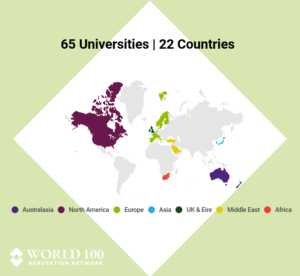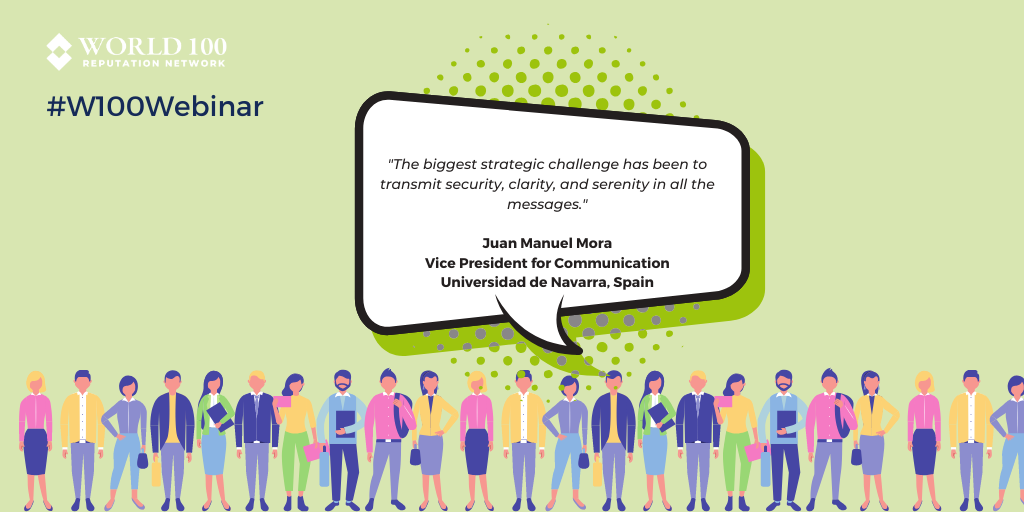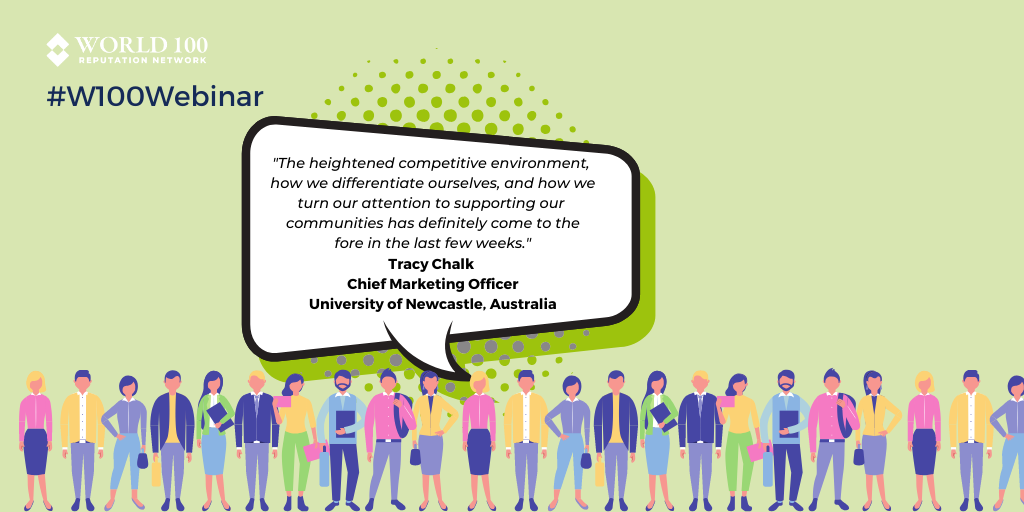
Reputation managers were at the forefront of universities’ reaction to the pandemic crisis, responding with speed and agility according to new research by the World 100 Reputation Network.
65 universities from around the world responded to a survey that aimed to get under the skin of how communicators at global institutions reacted to the Covid-19 challenges during the initial period of the crisis.
Respondents – leaders in reputation management at global universities – reported overwhelmingly that the pandemic had a huge impact on their institution in March, and reflected that their communications response had been good or consistently strong.
The range of challenges faced by communications teams included transitioning to remote working, increased workload, and speed of change.
“The biggest strategic challenge has been to transmit security, clarity, and serenity in all the messages. The biggest operational change has been to create a completely online community,” noted Juan Manuel Mora, Vice -President for Communication, Universidad de Navarra, Spain.

Decision-making processes during a crisis were also highlighted as a key challenge. Senior leadership teams tend to operate collegially, says Eilis O’Brien, Director of Communications and Marketing at University College Dublin. “That means they tend to take time to make decisions and the comms people deal with the information vacuum.”
When asked about the positives emerging from this initial period, a major feature throughout the survey was the enhanced teamwork that had been required to ensure an effective response to fast-changing priorities.

“Sticking together, being open to new ideas,” were real positives observed by Darren Goodsir, Chief Communications Officer at UNSW Sydney. “I’m very proud of my team and how the whole organisation has dealt with this.”
Encouragingly, more than 70% of respondents to the W100 survey reported that communications teams were more valued than usual in March, reflecting their important role in the initial response to the crisis.
“Leaders were turning to communications experts looking for advice on how to engage audiences through all our channels”, says Tracy Chalk, Chief Marketing Officer at the University of Newcastle. “And they were listening to us when we provided our feedback.”
Despite this recognition, many universities reported that they were expecting budget cuts due to wider financial challenges for universities: although a small number were receiving additional resources to meet the communications challenges.
The key focus for the initial phase of pandemic response had been communications with students and staff as rapidly changing external conditions forced many universities to close campuses and shift activity online.
“In the month of March, informing students and staff was a priority,” said Jillian Hamilton, Issues and Strategic Communications Manager at the University of Alberta. “But as we went along, we were also focused on informing stakeholders.”

Priority audiences were expected to change rapidly in the next period, with preparations for the next academic year, and a strong focus on student recruitment, conversion, and retention.
“The heightened competitive environment, how we differentiate ourselves, and how we turn our attention to supporting our communities has definitely come to the fore in the last few weeks”, says Tracy Chalk.
The World 100 Survey is being repeated monthly to gauge the on-going communications pandemic response. Click here to take the April survey.
You can read the full results of the March survey here
More analysis of the main points of learning from the initial phase of the crisis will be available to members of the World 100 Network.

